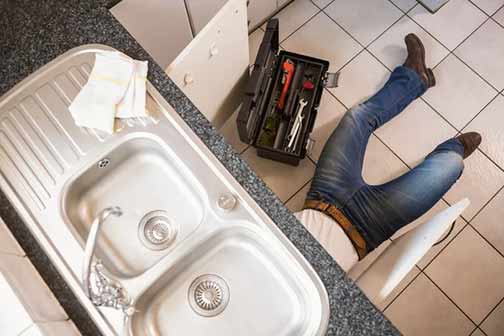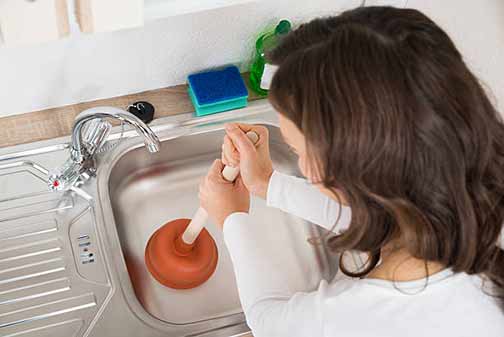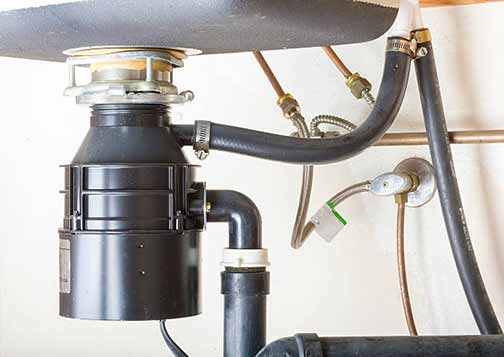
Kitchen plumbing issues are a common headache for many homeowners in the Chicagoland area. From leaking faucets to clogged drains, these problems can disrupt daily routines and cause significant damage if not addressed promptly.
Understanding the common kitchen plumbing problems specific to Chicagoland can help homeowners identify and troubleshoot issues before they escalate.
Identifying Leaking Faucets and Pipes in the Chicagoland Area
Leaking faucets and pipes are among the most common plumbing issues in kitchens. In Chicagoland, the fluctuating weather conditions can cause pipes to expand and contract, leading to leaks. Signs of a leaking faucet include a steady drip or a small puddle of water around the base of the faucet. Leaking pipes, on the other hand, may cause water stains on walls or ceilings, a musty odor, or an increase in water bills.
To troubleshoot leaking faucets, start by checking the washers and O-rings for wear and tear. Replacing these small components can often fix the problem. For leaking pipes, inspect the joints and connections for any visible cracks or corrosion. Tightening the connections or applying pipe sealant can help stop the leaks. If the problem persists, it may be necessary to call a professional plumber to assess and repair the issue.
Dealing with Clogged Drains in Kitchens
Clogged drains are another frequent kitchen plumbing problem in Chicagoland. Food particles, grease, and soap scum can build up in the pipes over time, leading to slow drainage or complete blockages. In colder months, the grease can solidify and exacerbate the problem.
To prevent clogged drains, avoid pouring grease down the sink and use a drain strainer to catch food particles. If a clog does occur, try using a plunger or a drain snake to clear the blockage. For more stubborn clogs, a mixture of baking soda and vinegar followed by hot water can help break down the buildup. If these methods do not work, it may be necessary to call a plumber to professionally clean the kitchen drains.

Addressing Low Water Pressure in Chicagoland Homes
Low water pressure can be a frustrating issue in the kitchen, making tasks like washing dishes and filling pots take longer. In Chicagoland, low water pressure can be caused by a variety of factors, including mineral buildup in the pipes, leaks, or issues with the municipal water supply.
To troubleshoot low water pressure, start by checking the aerator on the faucet for mineral deposits. Soaking the aerator in vinegar can help dissolve the buildup. If the problem persists, check for leaks in the pipes that could be reducing the water pressure. Additionally, contacting the local water utility company can help determine if there are any issues with the municipal water supply.
Fixing Garbage Disposal Problems in Kitchens
Garbage disposals are a convenient kitchen appliance, but they can also be a source of plumbing problems. Common issues include jams, leaks, and strange noises. In Chicagoland, the cold weather can cause food waste to harden and jam the disposal.
To troubleshoot a jammed garbage disposal, start by turning off the power and using a hex wrench to manually turn the blades and dislodge any stuck debris. For leaks, check the connections and seals for any signs of damage or wear. Tightening the connections or replacing the seals can often fix the problem. If the disposal is making unusual noises, it may be due to a foreign object stuck in the blades. Carefully remove the object to restore normal operation.
Preventing Frozen Pipes in Kitchens
Frozen pipes are a serious concern for homeowners in Chicagoland, especially during the winter months. When pipes freeze, the water inside can expand and cause the pipes to burst, leading to significant water damage.
To prevent frozen pipes, insulate any exposed pipes in the kitchen, especially those located near exterior walls. During extremely cold weather, keep the cabinet doors open to allow warm air to circulate around the pipes. Additionally, letting the faucet drip slightly can help prevent the water from freezing.
If a pipe does freeze, use a hairdryer or a heat lamp to gradually thaw the pipe. Never use an open flame, as this can damage the pipe and create a fire hazard.

Understanding the Impact of Chicagoland’s Water Quality on Kitchen Plumbing
The quality of water in Chicagoland can also affect kitchen plumbing. Hard water, which contains high levels of minerals like calcium and magnesium, can lead to mineral buildup in pipes and fixtures. This buildup can reduce water flow and cause damage over time.
To mitigate the effects of hard water, consider installing a water softener to remove the excess minerals. Regularly cleaning faucets and fixtures with vinegar can also help dissolve mineral deposits and maintain optimal water flow. Additionally, using a water filter can improve the taste and quality of the water, making it safer for cooking and drinking.
When to Call a Professional Plumber
While many kitchen plumbing issues can be resolved with basic troubleshooting and maintenance, some problems require the expertise of a close by Chicago plumber. In Chicagoland, it is important to know when to call for professional help to avoid further damage and costly repairs.
If you encounter persistent leaks, recurring clogs, or low water pressure that cannot be resolved with DIY methods, it is time to call a nearby plumber. Additionally, if you notice any signs of water damage, such as mold growth, water stains, or a musty odor, it is crucial to seek professional assistance immediately. A licensed plumber can accurately diagnose the problem and provide effective solutions to ensure the longevity and efficiency of your kitchen plumbing system.
Maintaining Your Kitchen Plumbing System
Regular maintenance is key to preventing kitchen plumbing problems and ensuring the longevity of your system. In Chicagoland, where weather conditions can be harsh, it is especially important to stay proactive with plumbing maintenance.
Schedule annual inspections with a professional plumber to check for any potential issues and perform necessary repairs. Additionally, routinely clean faucets, drains, and garbage disposals to prevent buildup and clogs. By staying vigilant and addressing minor issues promptly, you can avoid major plumbing problems and keep your kitchen running smoothly.
Summing It Up
Kitchen plumbing problems can be a significant inconvenience for homeowners in Chicagoland. However, by understanding common issues, implementing preventative measures, and knowing when to call a professional, you can effectively manage and resolve these problems.
Regular maintenance and proactive troubleshooting are essential to keeping your kitchen plumbing system in top condition, ensuring a functional and efficient kitchen for years to come.

